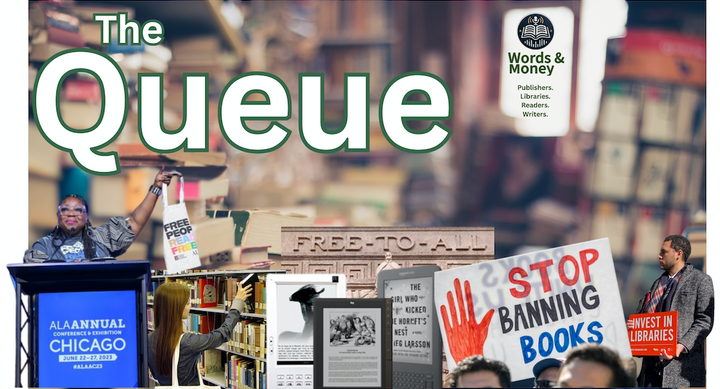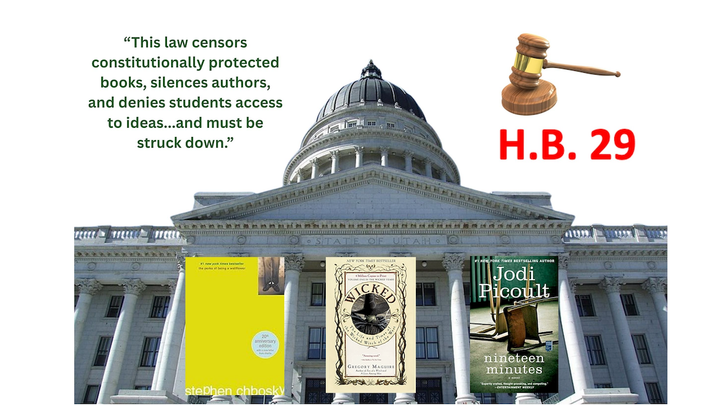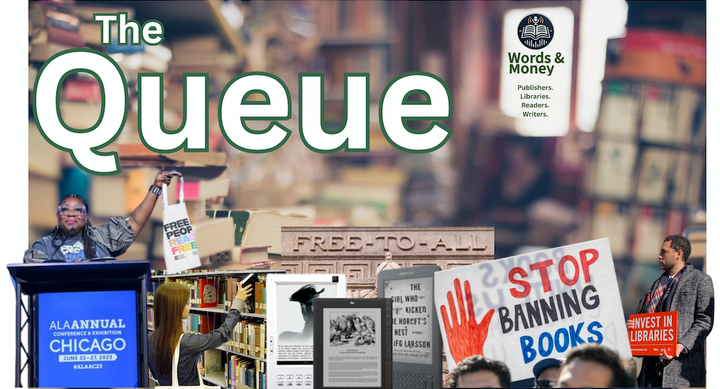The Queue: Library News for the Week Ending June 13, 2025
Among the week's headlines: Former Librarian of Congress Carla Hayden to speak at ALA 2025; Oregon passes its 'Freedom to Read' bill; AI developers are turning to libraries for training data; and how a new media specialist has supercharged reading at a Wisconsin school.
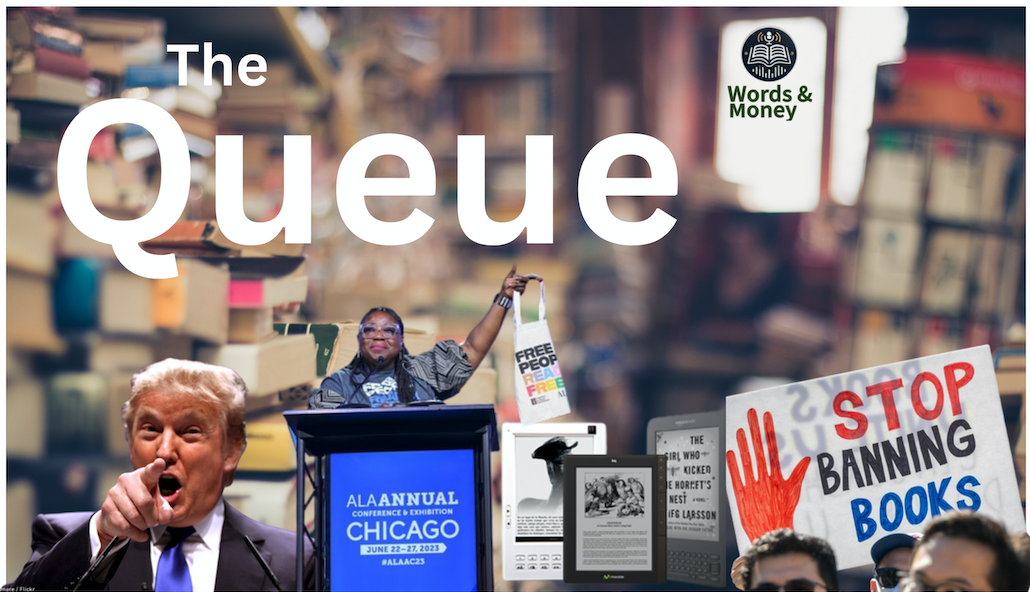
On Sunday, June 8, former Librarian of Congress Carla Hayden broke her silence and spoke with Robert Costa at CBS News, her first interview since her sudden dismissal last month.
Among the not-surprising-but-still-shocking moments, Hayden revealed that she has not heard from anyone at the White House beyond the brief email dismissing her. "I was never notified beforehand, and after," Hayden told Costa. "No one has talked to me directly at all from the White House."
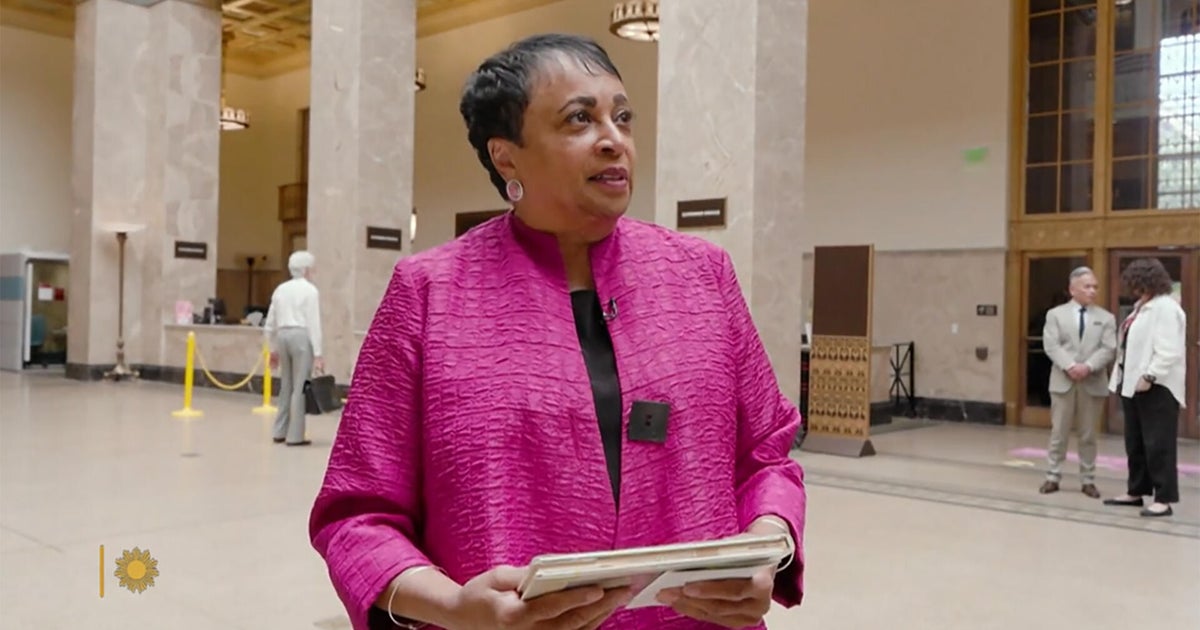
If you haven't seen it, the interview is worth checking out. In it, she also briefly addresses White House Press Secretary Karoline Leavitt's comments that Hayden was fired for "her pursuit of DEI" and for "putting inappropriate books in the library for children." Hayden conceded to Costa that, for Leavitt, there "might not have been as much of an awareness of what the Library of Congress does."
Since Leavitt uttered those comments, numerous commentators have rushed to note that the Library of Congress doesn't serve children, nor is it a lending library. But my read on Leavitt's remarks is that they were never really about Hayden's actual work. Rather, Leavitt's remarks are reflective of who has the administration's ear: the same right-wing ideologues who have been pushing book bans in communities across the nation. And for all the justified outrage over how Hayden was fired, Leavitt's remarks to me signaled that the worst is yet to come. Because who Trump appoints to succeed Hayden will likely say more than Hayden's clearly unwarranted dismissal.
Over her tenure, Carla Hayden showed the nation the true potential of the Library of Congress, and of libraries in general. But all the good work she did over the last nine years could well be erased in a matter of months by whoever comes next. That's the fight library advocates must now focus on, and prepare for.
Carla Hayden to Speak at ALA 2025

ALA announced this week that the former Librarian of Congress has been added to the program at the upcoming ALA Annual Conference, set for June 26-30 at the Pennsylvania Convention Center in Philadelphia. Hayden will appear in conversation with Kwame Alexander on June 28, from 1-2 p.m.
"Hayden and Alexander will discuss the current state of libraries and the challenges library professionals are facing not only in America but across the world, from book bans to library funding. Attendees can look forward to an informative discussion on the importance of libraries as cornerstones of democracy," reads an ALA release.
Massachusetts Senators Seek Answers on IMLS Cuts

Massachusetts Senators Elizabeth Warren and Ed Markey have sent a letter to IMLS Acting Director Keith E. Sonderling seeking answers on funding cuts.
“Donald Trump’s cuts to museums and libraries are an attack on our nation’s history and on children’s education. This chaos will jeopardize $50 billion in economic benefit and over 720,000 jobs," Warren said, in a release. "As the Trump administration continues to damage our communities, Senator Markey and I will keep fighting for families in Massachusetts and across the country.”
Warren and Markey asked Acting Director Sonderling to explain the agency’s plan to comply with minimum funding requirements for each state, detail the plan to comply with court orders halting the agency’s elimination, and provide clarity on the future of certain funding for programs and museums across the country by June 24, 2025.
Oregon 'Freedom to Read' Bill Heads to Governor's Desk

The Oregon Capital Chronicle reports that a bill to discourage book bans in Oregon libraries is now headed to Governor Tina Kotek’s desk.
"Senate Bill 1098 passed the Oregon House of Representatives Monday on a 34-21 vote. It would prohibit school libraries from removing books on the basis of their being about, or by, a member of a protected class as defined in Oregon’s anti-discrimination in education law. Those protected classes include: race, color, religion, sex, sexual orientation, gender identity, national origin, marital status, age and disability," the Chronicle reports. "Oregon would join at least eight other states—including Colorado, California, Illinois, New Jersey, Vermont, Minnesota, Maryland and Washington—who have adopted similar legislation either protecting library workers from lawsuits or prohibiting libraries from restricting access to books with diverse viewpoints, according to the American Library Association."
Huntington Beach Voters Rejects Censorship Efforts

In a closely-watched political drama over book banning, the Voice of OC reports that voters in the conservative enclave of Huntington Beach, California have rejected the city council’s proposal to institute a book review committee, and approved a measure that blocks city leaders from "selling the library" or "privatizing" its operations.
"City Council members have been loudly calling for residents to vote no on both initiatives for months, calling for the investigation of multiple proponents of the initiatives and organizing signs throughout town calling to keep porn away from kids," the report notes. "But library volunteers and residents came out in force at city council meetings, calling for city leaders to keep their hands off the shelves and leave book selection to librarians."
Popular Information on Florida's 'Literary Inquisition'
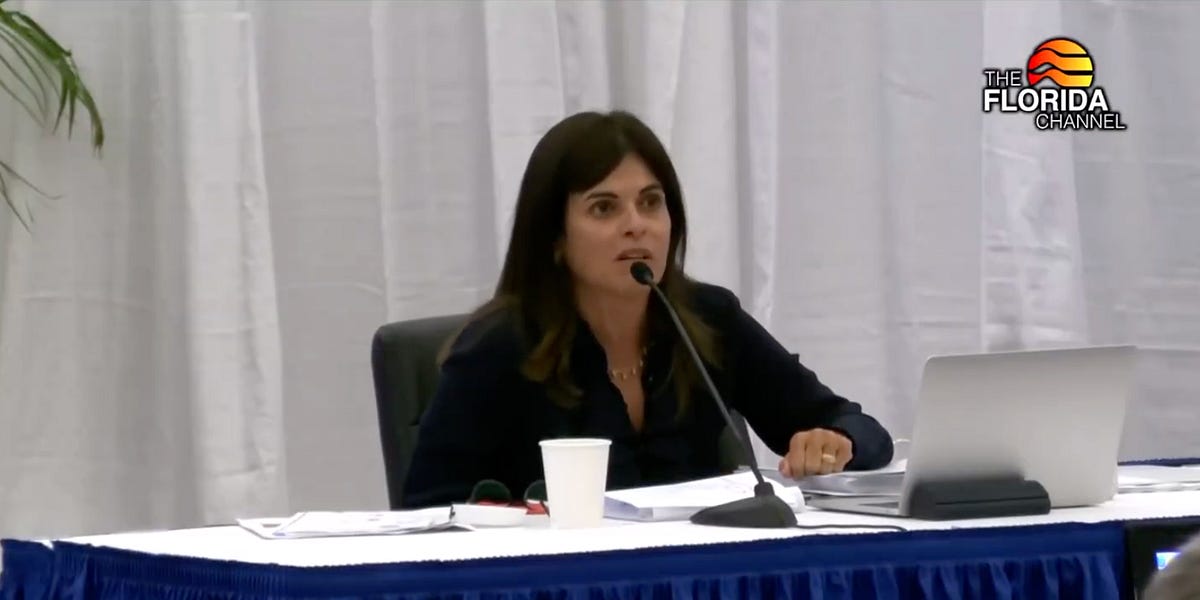
I'm a big fan of independent journalist Judd Legum, whose Popular Information Substack is a must-read for me. And this week, Legum and his team reported on a recent Florida State Board of Education meeting where a local school official was threatened for not removing books.
"In a chilling meeting of the Florida State Board of Education last week, a school district superintendent was publicly browbeaten and repeatedly threatened with criminal prosecution. The members of the State Board were incensed that Van Ayres, the Superintendent of Hillsborough County Public Schools, had not unilaterally and permanently removed a list of 55 books from school libraries," the report states. "While Florida Republicans have defended removing books from public school libraries in the name of "parents' rights," no Hillsborough County parent had objected to the books at issue. Rather, the State Board had summarily declared that the 55 books were 'pornography,' even though none of the books met the legal definition of pornographic material."
As we reported last week, a Florida court is currently weighing a decision in a publisher-led lawsuit that seeks to strike down HB 1069, the Florida state law that has declared hundreds of books to be pornographic and ordered their removal.
Ohio Budget Battle Still Tenuous for Libraries

Cleveland.com reports that a controversial bid to change the state funding formula for Ohio libraries isn't going away.
"Senate Republicans aren’t coming to the rescue of Ohio libraries. The Senate budget plan mirrors a House proposal that eliminates guaranteed state funding for libraries, tied to percentage of state tax revenues," the report states. "Under both budgets, library funding instead appears in the budget as a simple line item that could be slashed in subsequent budgets without notice. On top of that, it lumps together several other library entities into the same Public Library Fund so the money allocated would potentially be cut into smaller pieces."
Budget Shortfall Forces Closure of Washington Talking Book & Braille Library

Tacoma Weekly reports that the Washington State Library (WSL) has announced program closures for their research library and the Washington Talking Book & Braille Library after state budget cuts. "On the last day of the legislative session, the State Legislature passed the 2025–2027 Operating Budget without including any of the $6.7 million requested to support library operations," the report notes.
"The lack of budget appropriations to retain our knowledgeable staff and keep our programs running was an unfortunate casualty of the large budgetary shortfall facing our state legislature,” Secretary of State Steve Hobbs said, in a statement. "The impact of the closures will risk denying communities access to the information, literacy tools, and resources they depend on. Libraries are cornerstones of civic life and education in many areas of our state.”
Carnegie Corporation Awards $5 Million in Grants to 11 Library Systems
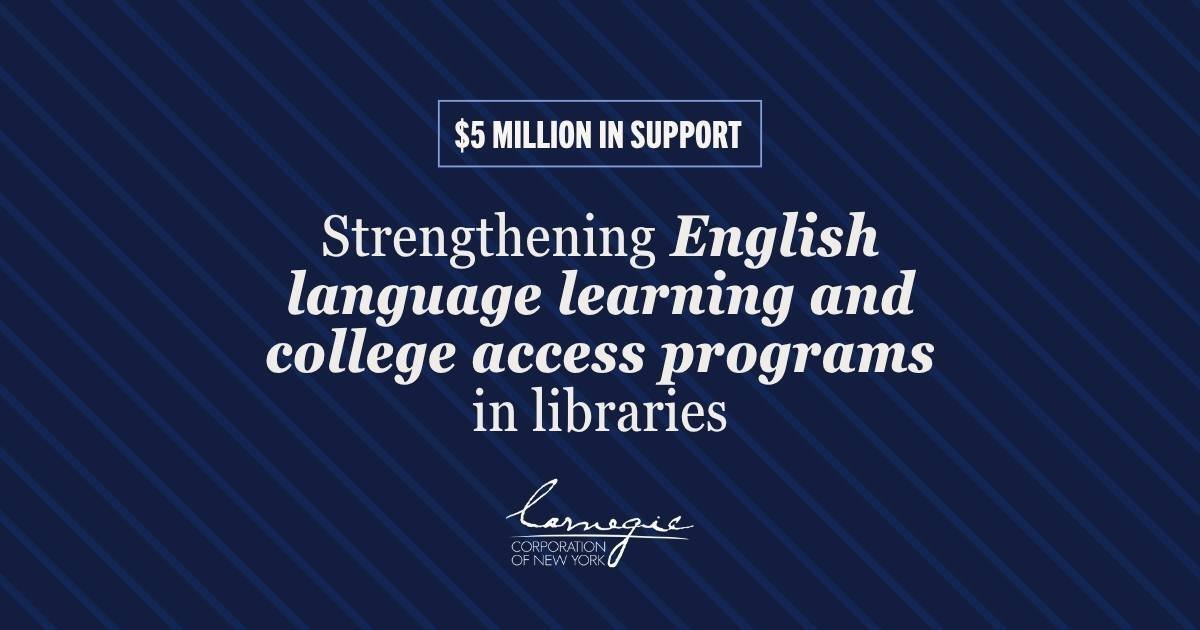
In a release, the Carnegie Corporation of New York announced that 11 public library systems across nine states will receive grants of up to $500,000 each from the foundation established by Andrew Carnegie.
"The libraries were selected through a competitive request for proposals as part of a two-year initiative launched by Carnegie’s Education program to help deliver critical services that promote socioeconomic mobility," the release notes. "From expanding English language workforce training in Prince William County, Virginia, to strengthening literacy models in urban New Jersey and supporting mentorship programs for local youth in Kansas City, Missouri, the funding will help public libraries advance opportunity and civic participation."
The winning libraries were drawn from a call for proposals that drew more than 1,400 responses. The Selected Grantees include:
Boston Public Library Fund (Boston, Massachusetts)
Gwinnett County Public Library (Lawrenceville, Georgia)
Harris County Public Library (Houston, Texas)
Kansas City Public Library (Kansas City, Missouri)
Library Foundation of Los Angeles (Los Angeles, California)
Nashville Public Library (Nashville, Tennessee)
Plainfield Public Library (Plainfield, New Jersey)
Prince William Public Libraries (Prince William County, Virginia)
Library Foundation SD (San Diego, California)
San José Public Library Foundation (San José, California)
Seattle Public Library Foundation (Seattle, Washington)
“Andrew Carnegie believed libraries were ladders upon which anyone and everyone could rise, and that belief continues to guide us,” said Dame Louise Richardson, president of Carnegie, in a statement. “At a time when trust in public institutions is fraying, libraries retain public trust. We are delighted to support these grantees as they provide essential programs and community services.”
AI Developers Are Turning to Libraries for Training Data

The Associated Press reports on how AI developers are looking to work with libraries for training data.
"Before ChatGPT sparked a commercial AI frenzy, most AI researchers didn’t think much about the provenance of the passages of text they pulled from Wikipedia, from social media forums like Reddit and sometimes from deep repositories of pirated books. They just needed lots of what computer scientists call tokens—units of data, each of which can represent a piece of a word," the report notes. "Now, with some reservations, the real libraries are standing up."
Kelly Jensen Talks with South Carolina School Librarians

Over at Book Riot, Kelly Jensen leads off her weekly censorship news column with an interview with South Carolina Association of School Librarians president Jamie Gregory and current president-elect Tenley Middleton. "This conversation is a poignant reminder of the necessity of listening to those on the ground and the devastating realities of being a school librarian right now in America and in a state where library workers have some of the largest targets on their backs for simply doing their jobs of meeting the needs of all students," Jensen writes.
These Librarians Rock. Literally.

Berkleyside reports on a band of librarians, literally, who have turned kids books into hits.
"These city librarians staff reference desks, help locate books on shelves, renew library cards and all the usual duties of the profession. But their job descriptions include another gig: making fun, zany music for children as the library’s official Story Time Band," the report notes. "The band’s repertoire, a kind of world music, hip-hop, reggae, blues, sing-along playlist spliced with read-aloud storytelling is intended to boost early literacy or help children learn language skills... If audience size and feedback is a measure, the band is a smash."
And finally this week...

We love to close with a positive story, and this certainly fits the bill: EducationWeek has a great interview with Leigh Knapp, who as her school’s first full-time media specialist has helped kids discover the joy of reading.
"This school year, her first in the role at Bethune Academy in Milwaukee, Knapp’s efforts to replace and add thousands of books, refresh the library’s seating and decor, and implement a schoolwide reading challenge have 'changed the entire culture' around reading, she said. Struggling readers and English learners at the pre-K-8 public school are picking up titles that appeal to them and at least attempting to read them. More students are reading on grade level, according to state test scores and the results of internal screeners," the article notes.
In the piece, Knapp spoke about the importance of having her role be a full-time, dedicated position.
"I couldn’t have done this if I was part time. It takes time and a commitment," Knapp told the EducationWeek, noting that circulation has increased 549% compared to last year, with students checking out more books in the current school year than in the last six "in-person school years" combined.
"People just don’t know the possibilities until they see it sometimes," Knapp said. "We have kids whose entire perception of the library is changing to, ‘Wow, I really like being in this library now,’ and their attitudes are changing because they’re able to compare before to now. But we also have the little kids who are coming up through the grades now and will know from the very beginning that books are cool. That’s amazing to me."













